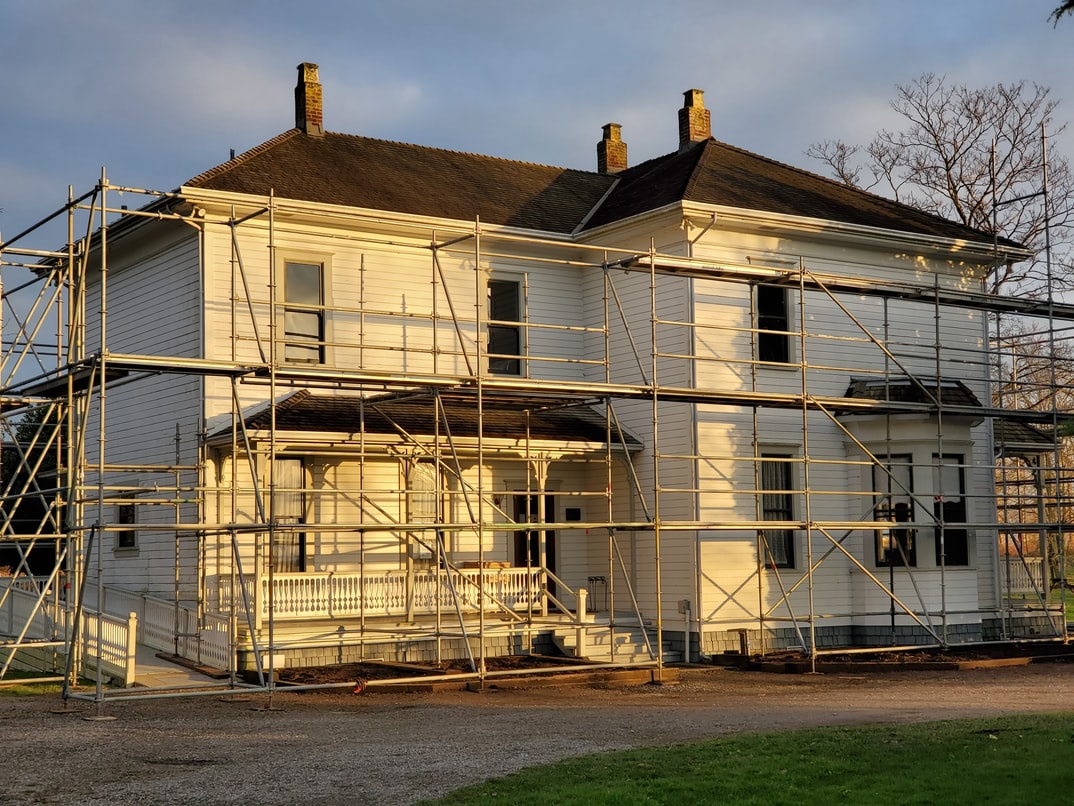There are numerous ways to get on the property ladder. First time buyers in the jaw-droppingly expensive capital might go down the shared ownership property in London route, or perhaps they’ll look at buying a house that needs a lot of work doing to it (a ‘fixer-upper’). Fixer-uppers aren’t for the faint-hearted. Of course, houses that need work done to them vary from needing new flooring to needing an actual floor, but let’s have a look at some of the pros and cons of a fixer-upper.
Pros of a fixer-upper
Initial cost – you’re scouring estate agents’ websites and see a property that looks cheap, it’s probably because it’s – in estate agent speak – in need of modernisation. Not only will you save money on the purchase price of a property the same size in the same area, but because the purchase price will be lower, you’ll save money on stamp duty too.
More choice of location – If there’s a location in which you’d dearly love to live but haven’t been able to afford, buying a property that needs work doing to it can get you a foot in the door, quite literally.
It’s a blank canvas – Calling it a ‘blank canvas’ is probably a bit of a stretch. A blank canvas is usually clean and smooth and ready for painting, whereas a fixer-upper will need a lot done to it before you start the painting. Still, a house that needs work done from top to bottom means you can restyle the entire house and make it the home of your dreams. You can even move walls if you want to (but not without a professional checking it’s okay to do so first).
A sense of achievement – There are huge rewards at the end of a renovation. Sure, there’s the increase in the property’s worth, a home that’s decorated to your exact requirements and the relief that it’s all over. But what you really get at the end of a renovation project is the sense of achievement. You can sit in your pristine, freshly-plastered and painted living room, knowing everything around you is because of your hard work. Even if you didn’t do it all yourself, it’s still a hugely rewarding feeling knowing you brought a neglected house back to being a beautiful home.
The cons of a fixer-upper
Cost – Although the initial purchase price of a fixer-upper can be tens of thousands of pounds less than an immaculate property on the same street, the cost to do it up can be considerable. Whatever you think it’ll cost you to renovate the property, add 20% onto your budget as a contingency fund. You’ll spend it, trust us. Speaking of money, if you need to get a mortgage on the property, some lenders won’t lend on a property that needs too much work, e.g. if it doesn’t currently have a functioning kitchen or bathroom.
Stress – Doing up a house is stressful. If you also have a full-time job, renovating around this is, to be blunt, knackering. Not only is renovating a property tiring, it can cause a strain on your relationship when all your spare time is taken up painting or building. You may have to move out while your house is currently a building site, which can also be a great cause of stress, as well as being an extra expense. Even if you don’t have to move out, you’ll be inconvenienced while the work is going on and will probably find yourselves living out of one room for a while. If you do go down the fixer-upper route, know your limits. You may think you’re a whizz at DIY, but get the professionals in where necessary, especially for things like plastering and electrics. A fixer-upper that’s been bodged and done on the cheap won’t give you much of a return for your money. Buying a house in need of modernisation can be extremely rewarding and profitable, but be sure to weigh up all the pros and cons of a fixer-upper before making an offer on one.



